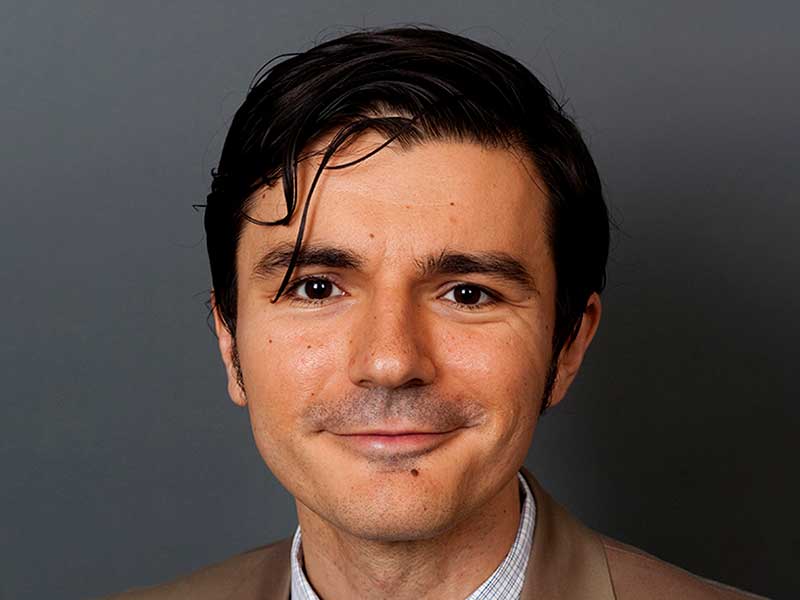Newly translated documents discussed in these analyses include:
- The Symptoms, Damages, and Lessons of Historical Nihilism in the Communist Party of the Soviet Union by Hu Zhongyue, a professor at the Anhui University School of Marxism.
- The Fundamental Reasons, Lessons, and Insights of the Fall of the Soviet Union’s Party and State by Li Shenming, director of the World Socialist Research Center at the Chinese Academy of Social Sciences (CASS).
- A Review of Chinese Scholarship on the Collapse of the Soviet Union by Zuo Fengrong, director of the International Politics Research Department in the Institute of International Strategic Studies at the CCP Central Committee Party School.
- Historical Lessons and Contemporary Implications of the Soviet Communist Party’s Disengagement from the Masses in its Later Period by Zhang Shuhua, director of the Institute of Political Science and dean of the School of Government at the University of the Chinese Academy of Social Sciences and Zhang Zhang, a doctoral student in the School of Government at the University of the Chinese Academy of Social Sciences.
Jump to commentary from:
Martin Dimitrov | Elizabeth Perry | Neil Thomas | Chris Buckley


Department Chair and Professor of Political Science, Tulane University
Although historical events of the magnitude of the Soviet collapse rarely have a mono-causal explanation, the selected readings illustrate that the dominant strand of Chinese thinking has moved from an emphasis on complexity toward accounts that attribute the end of the Soviet Union nearly exclusively to ideological decay. The empirical accuracy of these explanations is not all that important. What matters more is their capacity to highlight the current anxieties of the Chinese Communist Party (CCP) about the strength of the foundations of its rule.
The 1990s were a period of deep Chinese scholarly engagement with the collapse of communist regimes. Even though the topic remains as vital to the CCP as it was three decades ago, certain types of research that were undertaken in the 1990s are no longer conducted today. Examples include the role of economic performance in explaining the demise of communism, the destabilizing effect of ethnic mobilization, and the budgetary strain created by excessive military spending. Also gone is the comparative focus that analyzed the Soviet collapse alongside the dismantling of communist regimes in Eastern Europe and Mongolia. Finally, research on the factors that explain the persistence of communist parties in Vietnam, Laos, North Korea, and Cuba has similarly declined in volume. The end of communist rule in the Soviet Union is seen as a single case that has a single explanation. The complexity of a historical phenomenon has been reduced so that a clear message about the lessons to be drawn from it can be transmitted to domestic audiences.
The currently dominant explanation of historical nihilism was present in some of the earliest accounts of the Soviet demise, but it only took center stage in the 2010s under Xi Jinping. One issue that is not widely appreciated concerns the root causes of historical nihilism and, consequently, the solution to the problem. As some of the essays make clear, Chinese understandings attribute the rise of historical nihilism to the harmful impact of Western ideas in the Soviet Union. The relevant solution for China is the notion of cultural security, which involves a dual strategy of blunting the corrosive impact of Western ideas by blocking their circulation and of promoting a domestic ideology that has wide appeal. Cultural security was designated as a core component of comprehensive national (state) security in 2014, shortly after a Central Committee document on the ideological sphere outlined the dangers of historical nihilism and other Western ideas such as media freedom, civil society, and human rights. Instead of democracy, domestic audiences were presented with the idea of the Chinese Dream. Historical nihilism is incompatible with the pursuit of the Chinese dream of the great rejuvenation of the Chinese nation under the leadership of the CCP. This is the fundamental lesson of the Soviet collapse.
In sum, although the collapse is a singular historical event, the lessons that China drew from it have changed significantly over time. The current emphasis on ideological vigilance reflects Chinese domestic political priorities rather than new advances in scholarly research on the issue.


Henry Rosovsky Professor of Government, Harvard University and
Director, Harvard-Yenching Institute
As these documents suggest, China’s explanation for the Soviet collapse has shifted in recent years to emphasize the critical importance of ideology, in particular the pernicious influence of “historical nihilism”—or views that might question affirmative narratives of Chinese Communist Party (CCP) history and heroes. Khrushchev’s 1956 denunciation of Stalin is condemned as an early expression of historical nihilism that de-legitimized a revolutionary hero and led to the eventual demise of the Soviet Union. The takeaway for China is clear.
In 2012, the year that Xi Jinping became general secretary of the CCP, historical nihilism was listed in an internal document of the CCP Research Office as one of seven dangerous Western values threatening to subvert official ideology. In 2013, Xi explicitly attributed the disintegration of the former Soviet Union to historical nihilism. In 2018, the attack on historical nihilism was strengthened by a new law making it a criminal offense to defame China’s revolutionary heroes and martyrs.
How was Xi introduced to the arcane concept of historical nihilism? A good bet would be by top CCP ideologist Wang Huning, the political theorist who is also credited with inventing the Chinese Dream, a knock-off of the American original. Former political science professor Wang Huning was originally promoted to direct the CCP Research Office by then General Secretary Jiang Zemin, who in a December 1989 speech characterized both the recent Tiananmen protests in China and the collapse of communism across Eastern Europe as examples of “historical nihilism.”
How had Wang Huning come up with the idea of historical nihilism? According to his book, entitled America Against America, Wang was influenced by Allan Bloom’s famous best-seller, The Closing of the American Mind. Bloom was a Straussian political theorist at the University of Chicago whose 1987 book (subtitled How Higher Education Has Failed Democracy and Impoverished the Souls of Today’s Students) argued that culture wars were poisoning the American academy and threatening the future of American democracy. The second part of Bloom’s book, entitled “Nihilism, American style,” cites Nietzsche on the dark abyss of nihilism into which modern man will fall if he rejects traditional values and heroes.
In America Against America, his own best-seller, Wang Huning cites Bloom’s provocative accusation that Americans no longer appreciated the principles on which their democracy was founded, thereby endangering the very survival of the political system. Wang writes, “Bloom calls this trend nihilism. Nihilism has become the American way, a fatal shock to the American spirit. The American value system is declining as is its entire democratic system.” The specter of regime collapse in the United States sounded the alarm for a Chinese political theorist worried about the demise of political systems in general and his own regime in particular.
Ironically, then, a conservative American philosopher’s diagnosis of the ills of American higher education and the danger its embrace of value relativism posed to the future of American democracy became an inspiration for China’s diagnosis of the collapse of Soviet Communism and the principal lesson it offers for the CCP.

Fellow for Chinese Politics, Center for China Analysis, Asia Society Policy Institute
Xi Jinping seemed on top of the world. It was October 25, 2017. He strode confidently across the bright red carpet in the East Hall of Beijing’s Great Hall of the People to unveil a new slate of top officials. He came fresh from a meeting that confirmed his second term as general secretary of the Chinese Communist Party (CCP) but did not anoint a successor, defying the nascent norms thought to limit the tenure of CCP leaders. He told over 500 journalists from around the world that “the Chinese Communist Party aspires to a thousand years of greatness for the Chinese nation, and that at one hundred years we are just in our prime.”
But Xi was anxious. “I spoke these words with a deep sense of worry,” he admitted to a gathering of senior officials early the next year. He rattled off the names and precise durations of several Chinese dynasties and lamented that even the lengthiest “faded like the setting sun beyond the western hills,” consumed eventually by corruption, discontent, and rebellion. The lesson was clear, Xi told his audience: “it is very difficult to maintain prosperity and long-term peace and stability. Without introspection, vigilance, and effort, even the most powerful of regimes can come to an end.”
Even more than most Chinese leaders, Xi feels the weight of history on his shoulders. That is why these translations of recent works on the fall of the Soviet Union provide a valuable contribution to understanding China’s politics in the Xi era. In December 2012, only a month after he took charge, Xi warned his comrades that the CCP must learn from its Soviet forebearer: “Why did the Soviet Union disintegrate? Why did the Soviet Communist Party collapse? An important reason was that their ideals and beliefs had been shaken … It’s a profound lesson for us!” In the same speech, he famously said “nobody was man enough” to stop Mikhail Gorbachev from destroying the USSR. This thinking seems a clear inspiration for Xi’s early crackdowns on political dissent and intra-party debate.
None of the translated authors engage with Xi’s own statements on the Soviet collapse—probably out of political caution—but the common understanding of his views, based on early speeches such as the one mentioned above, resonates with a new intellectual orthodoxy identified by Zhu Fengrong. Her essay posits two main schools of thought among Chinese writers: Marxist theoreticians who blame Gorbachev’s ideological errors, and Sovietologists who blame the institutions and policies of the Soviet Communist Party (CPSU). She belongs to the latter camp and laments that, since the 20th anniversary of the Soviet downfall in 2011 (right before Xi became leader), the former has become far more influential in China. Hu Zhongyue and Li Shenming both expound upon this ideological thesis in their papers.
Recently, however, Xi has shifted the emphasis of his comments on the Soviet collapse away from ideology and toward institutions. In January 2021, Xi told a seminar that a major cause was that “the Soviet Communist Party separated itself from the people and became a privileged bureaucratic group that only protected its own interests. Even in countries that have achieved modernization, if the ruling party turns its back on the people, it will damage the results of modernization.”
Xi is hardly abandoning strongman rule, but his new lesson for the CCP here is that it must devote serious attention not only to enhancing its own self-governance but also to implementing policies that improve the welfare of ordinary Chinese citizens. Later in 2021, Xi elevated a program of “common prosperity” to address the latent political threat of yawning inequality amid slowing growth. While it unnerved the business community, and some overzealous policies shocked markets, a resultant pause in the program has not changed Xi’s long-term commitment to its principles.
The article by Zhang Shuhua and Zhang Chang suggests that Chinese researchers have since paid somewhat more attention to the CPSU’s mistakes in policy as well as ideology. Their section on “Practical insights from the CPSU’s disengagement from the masses in the later periods” underscores Xi’s new interpretation by highlighting the need to “firmly establish a people-centered development philosophy” and “[maintain] the flesh-and-blood ties between the Party and the people.”
This development raises the possibility that Beijing will encourage Chinese scholars to further explore the socio-economic causes of the Soviet collapse. Such a shift could reinforce the direction of Xi’s policymaking since his total victory at the 20th Party Congress last October, which is reemphasizing growth and business but in the context of tighter political direction and stronger market regulation.
Xi is obsessed with learning from history to break the dynastic cycle of Chinese regimes that rise but then ultimately fall. He wants the CCP to live forever and is steering it in a direction that he believes will achieve that goal. Studying the evolution of Chinese scholarship on the Soviet collapse, and on the breakdown of other imperial projects, can help shed light on where he might take China next.


Chief China Correspondent, The New York Times
The Chinese Communist Party (CCP)’s autopsies into the failure of Soviet Communism—one of the defining fixations of Xi Jinping’s era—date back decades, much earlier than the actual demise of the Soviet Union in the 1990s. And a closer look at the Chinese polemics about the Soviet Union from that earlier time may give us a clearer view into the political-intellectual wellsprings of this fixation.
Xi’s generation came of age in the 1960s, after Mao’s break with Khrushchev had lit an intense ideological battle between Beijing and Moscow. To marshal ideas for its criticisms of the Soviet Union, the CCP’s propaganda department translated and published a series of “gray-cover” books. These were translations of Eastern European and Western critiques of Stalinist and post-Stalinist Communism intended for internal circulation among the scholars and officials—partly to illustrate the ideological aberrations that could arise from following the Soviet example, partly to inspire arguments against the Soviet foe.
The covers were drab, but their contents were incendiary at a time when even a hint of ideological heterodoxy—such as in the novel that led to the purge of Xi’s father, Xi Zhongxun—could bring serious trouble. The translations included Eduard Bernstein and Karl Kautsky, Leon Trostsky’s The Revolution Betrayed and his biography of Stalin, and even, in 1962, Friedrich Hayek’s The Road to Serfdom.
Circulation of these translations would have stayed highly limited in China but for the Cultural Revolution. The breakdown of controls after 1966 let the books spread, and Mao’s drive to send youth to the countryside—among them Xi—created a generation of youths stuck in villages, hungry for ideas. Friends of the author who were “sent down” have described how giddying it felt to come across these books, perhaps none more so than The New Class, Milovan Djilas’s early analysis of the Communist ruling caste, which was published in Chinese translation in 1963. One friend told me how he and his friends laboring in a village in Shaanxi hand-copied the book to study.
It is unclear if Xi read any of these books as a youth in his Liangjiahe Village in Shaanxi Province. Xi and other sent down youth there have described him reading the classic Chinese novel Outlaws of the Marsh, as well as How the Steel Was Tempered, a socialist heroic novel by Nikolai Ostrovsky. But Xi has also recounted walking nine miles from his village to beg to borrow a copy of Faust.
Among an entire generation of Chinese, the criticisms of Soviet Communism in the “gray-cover” books formed a kind of intellectual substrate. For some, the books were signposts for their first steps toward disillusionment with Mao’s own communism. Others, such as Xi and Li Shenming— the industrious propagandist behind so many Chinese polemics on the fall of the Soviet Union—do not seem to have ever been tempted into apostasy, even if they read these books.
Still, in considering Xi’s repeated return to the lessons of the Soviet experience, it is worth noting how often previous Chinese leaders have done the same, including the anxious debates under Deng Xiaoping about the upheavals in Poland and across Eastern Europe, as well as Jiang Zemin’s interest in the Soviet downfall, which apparently extended into his retirement. Against this backdrop, Xi does not stand out for his focus on the theme but for the intensely ideological account of the Soviet decline and fall. In that, at least, he may owe something to the “gray-cover” books of his youth.
To top